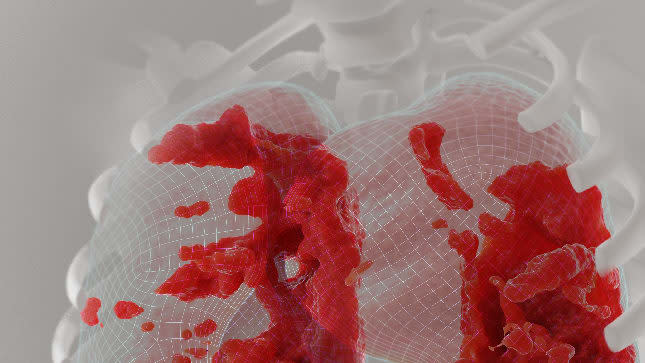Treating Long COVID May Get a Lot Easier With This New Tool

- Oops!Something went wrong.Please try again later.
Roughly 10 to 30 percent of people who catch COVID don’t fully recover for several months, or even years. They instead experience a phenomenon known as long COVID, a constellation of new or ongoing health problems that can affect large swaths of the body from the brain to even reproductive organs. Worryingly, there may even be hidden damage in organs like the lungs that we can’t see because diagnostic tools aren’t powerful enough to pick up the finer details of the virus’s onslaught.
This has made monitoring the lung health of a post-COVID patient difficult for clinicians—but that might soon change with the help of artificial intelligence. In a paper published Monday in the journal Nature Machine Intelligence, researchers in Saudi Arabia have developed Deep-Lung Parenchyma-Enhancing (DLPE), an AI tool that can unearth abnormalities buried deep in a chest CT scan.
Dogs Have Been Successfully Trained to Sniff Out COVID
The AI works by analyzing an image of a patient’s lung parenchyma—the tissues that are often hardest hit by COVID and involved in processing oxygen and carbon dioxide. DLPE searches for and enhances the appearance of any abnormalities like lung lesions that don’t look like they should belong. The tool could pick up lesions caused by pulmonary fibrosis (scarring of the lungs during COVID-19 infection) that weren’t visible with conventional radiology.
“With DLPE, for the first time, we proved that long-term CT lesions can explain such symptoms,” Xin Gao, a computational biologist at the King Abdullah University of Science and Technology and the paper’s lead researcher, said in a press release. “Thus, treatments for fibrosis may be very effective at addressing the long-term respiratory complications of COVID-19.”
The researchers believe their AI will help uncover hidden damage within the lungs and point to a more definite diagnosis behind long-haul COVID symptoms like shortness of breath or persistent coughing. It could even be a helpful diagnostic tool for uncovering unseen lung abnormalities or dysfunctions in people suffering from other respiratory illnesses like pneumonia, tuberculosis, or lung cancer.
Get the Daily Beast's biggest scoops and scandals delivered right to your inbox. Sign up now.
Stay informed and gain unlimited access to the Daily Beast's unmatched reporting. Subscribe now.

